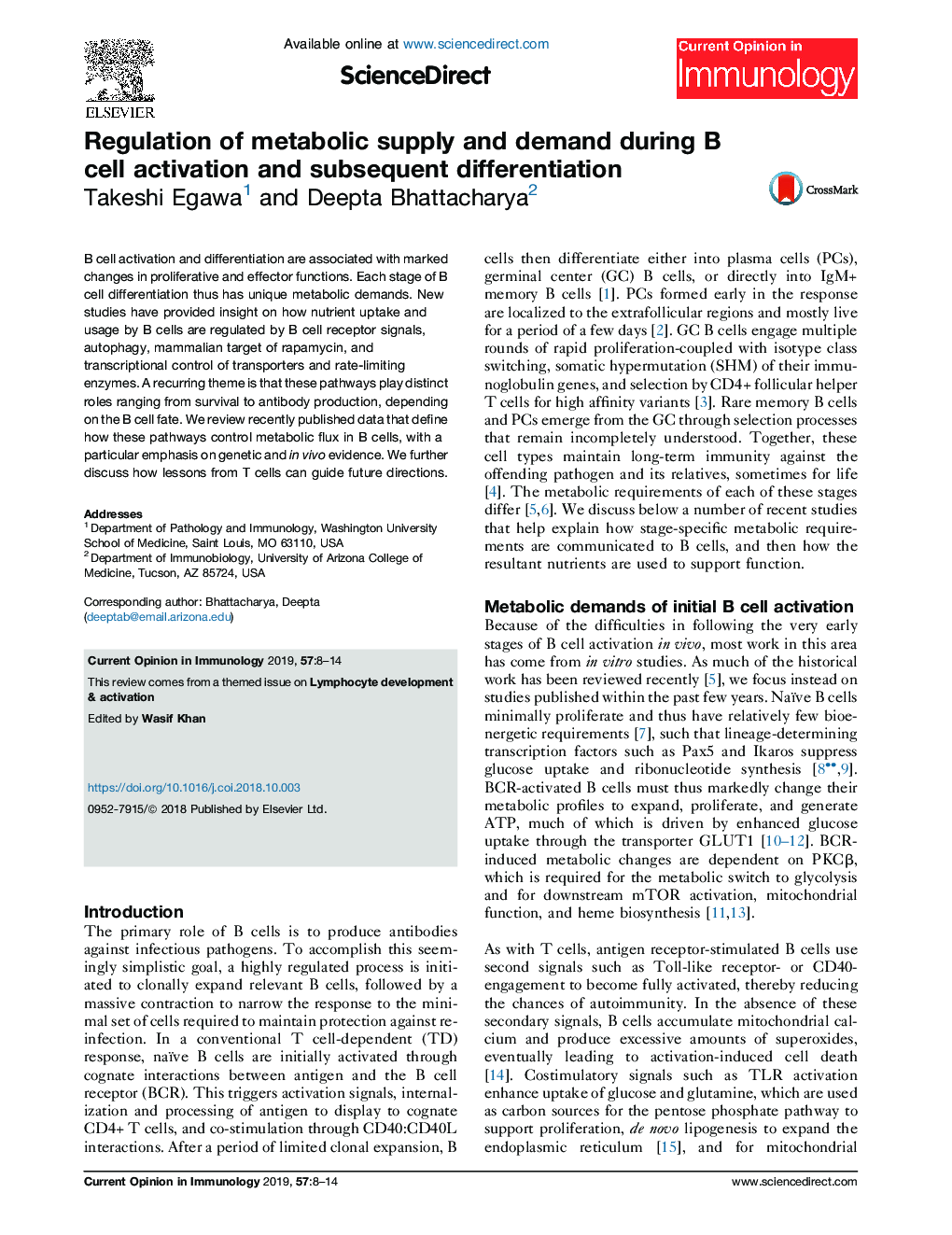| Article ID | Journal | Published Year | Pages | File Type |
|---|---|---|---|---|
| 12121862 | Current Opinion in Immunology | 2019 | 7 Pages |
Abstract
B cell activation and differentiation are associated with marked changes in proliferative and effector functions. Each stage of B cell differentiation thus has unique metabolic demands. New studies have provided insight on how nutrient uptake and usage by B cells are regulated by B cell receptor signals, autophagy, mammalian target of rapamycin, and transcriptional control of transporters and rate-limiting enzymes. A recurring theme is that these pathways play distinct roles ranging from survival to antibody production, depending on the B cell fate. We review recently published data that define how these pathways control metabolic flux in B cells, with a particular emphasis on genetic and in vivo evidence. We further discuss how lessons from T cells can guide future directions.
Related Topics
Life Sciences
Immunology and Microbiology
Immunology
Authors
Takeshi Egawa, Deepta Bhattacharya,
